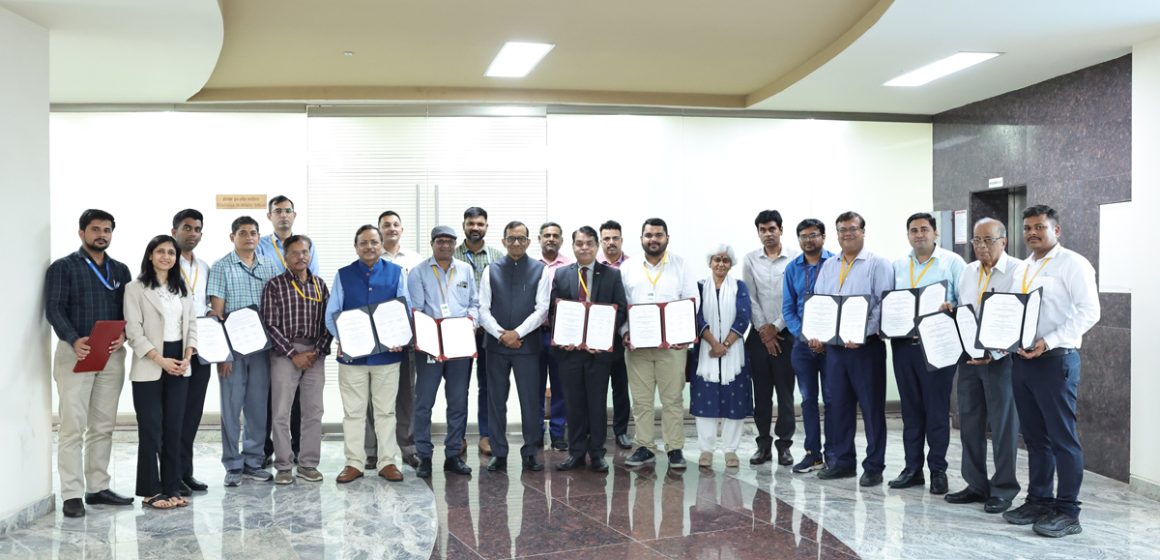With these latest agreements, the total number of technologies transferred to the Indian industry has reached 98.
In a significant step towards commercialising space technologies and reducing import dependence, the Indian National Space Promotion and Authorisation Centre (IN-SPACe) has facilitated the transfer of five innovations developed by the Indian Space Research Organisation (ISRO) to domestic industry partners. The tripartite agreements were signed between NewSpace India Limited (NSIL), the recipient companies, and IN-SPACe at its headquarters in Ahmedabad.
The transferred technologies are expected to enhance self-reliance and unlock industrial applications across sectors such as automotive, biomedical, and advanced manufacturing. Among them is the low-temperature co-fired ceramic (LTCC) multi-chip module, developed by ISRO’s Space Applications Centre (SAC). This compact module integrates multiple semiconductor chips and has been acquired by Voltix Semicon, Pune, for use in high-volume biomedical applications, particularly RT-PCR kits. Voltix currently relies on imports for this capability. The transfer is expected to strengthen domestic production and reduce external dependency.
Another innovation, SILCEM R9, is a room-temperature vulcanising (RTV) silicone adhesive developed by the Vikram Sarabhai Space Centre (VSSC). It has been transferred to Crest Speciality Resins, Ahmedabad, for solar panel bonding. With this adhesive previously sourced from abroad, the technology transfer will ensure local availability and support indigenisation.
Commenting on the technology transfer, Pawan Goenka, Chairman, IN-SPACe, said these transfers highlight the growing capability and confidence of the Indian industry.
“While some of these technologies will directly substitute imports, others will unlock applications well beyond the space sector. The true impact will be realised when industry scales them up for widespread use. IN-SPACe, together with ISRO and NSIL, will remain a strong partner in enabling that journey.’’
Rajeev Jyoti, Director, Technical Directorate, IN-SPACe, added, “With today’s five technology transfer agreements (TTAs), the total number of TTAs executed with industries has reached 98. There is strong interest from industry in acquiring these technologies, and IN-SPACe continues to promote them for wider adoption.”
The other transfers include film adhesives EFA 1753 and EFA 1752, developed by VSSC and transferred to Azista Composites, Hyderabad; a 30W HMC DC-DC converter developed by URSC and transferred to Ananth Technologies, Hyderabad; and an anodisation process for 3D-printed Al-10Si-Mg alloy, also developed by URSC, and transferred to Pushpak Aerospace India, Bengaluru.
Established in 2020, IN-SPACe is mandated to promote, authorise and supervise space activities by non-governmental entities (NGEs). Its scope includes enabling satellite and launch vehicle development, facilitating space-based services, sharing ISRO infrastructure, and supporting the creation of new space facilities.


